Workplace Relationships and Professional Burnout Among Certified Child Life Specialists
-
You must log in to register
- Non-member - $15
- Member - Free!
- Student - Free!
Certified Child Life Specialists (CCLS) work within a complex medical system, comprised of multiple interpersonal relationships including those with their immediate supervisors, peers, and non-child life medical staff. The job demands of a CCLS often place them in situations that involve high levels of stress and anxiety, placing them at risk for burnout and job turnover. This study examined which types of work relationships are associated with levels of burnout. The study included a sample of CCLS (n = 214) working a minimum of 20 hours a week in clinical settings in the United States. Participants completed an online survey containing the Caplan Social Support Instrument, the Maslach’s Burnout Inventory, and an open-ended question related to burnout. Multiple linear regression was used to identify factors associated with burnout. Having a positive relationship with one’s direct supervisor, a positive relationship with peers or positive relationships with non-child life medical staff were associated with lower rates of burnout. Age, years of experience, exposure to trauma and bereavement, and exposure to chronic or terminal illness were not found to be significant predictors of burnout. Qualitative analysis identified additional stressors that participants considered contributors to burnout including compensation, workload, and respect and understanding of the child life role by other medical professionals.
